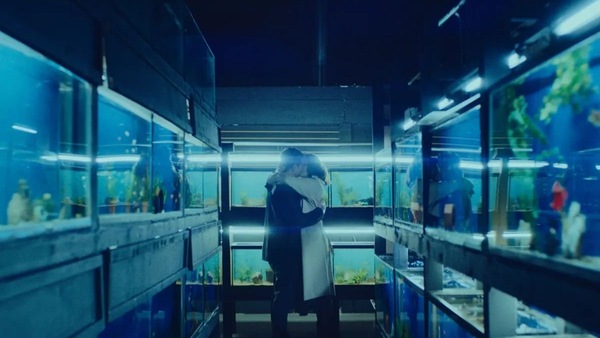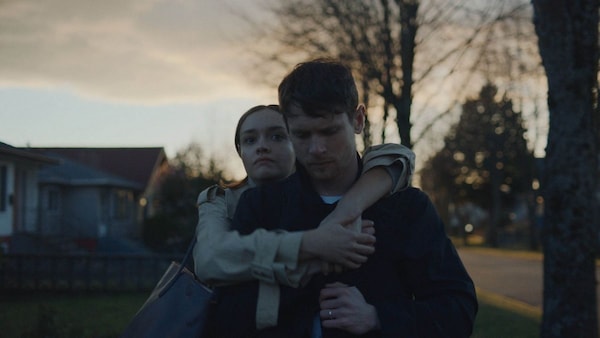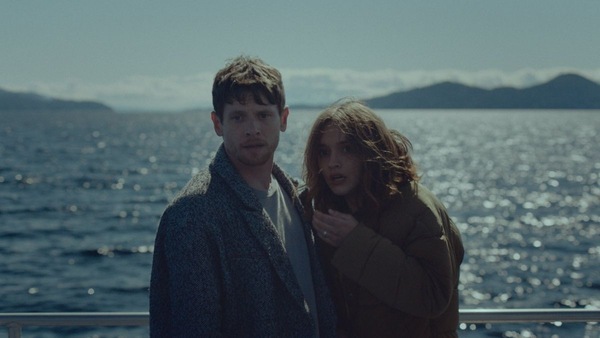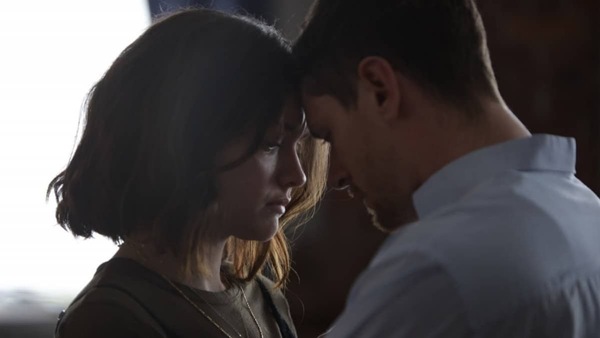Little Fish movie review: Olivia Cooke, Jack O’Connell’s pensive love story is poignant and heartwarming
As the world hurtles into a pandemic that causes people to lose their memories, Emma and Jude grapple to hold onto every precious moment. Will their love triumph over this disaster or fall victim to the unsolvable disease?

Last Updated: 08.53 AM, Nov 12, 2021
Story: Emma and Jude find themselves amidst a worldwide health crisis that affects any and every person. The disease, which entails people’s memories being wiped out, is unknown to the scientists and researchers of the world. As they struggle to deduce solutions, Emma fights to hold onto Jude, the newest victim of NIA (Neuroinflammatory Affliction).
Writer-director Chad Hartigan’s soul-stirring love saga is too relevant to ignore. Charting the hapless lives of a post-pandemic world, Little Fish follows Emma (played by Olivia Cooke), a veterinarian, and Jude (played by Jack O’Connell), a photographer. Based on Aja Gabel’s short story, the film is ably scribed by Mattson Tomlin. The story takes on a melancholic undertone with the infectious NIA (Neuroinflammatory Affliction, we’re told) engulfing the world one unsuspecting victim at a time. The virus robs people of their memories and can affect anybody irrespective of their age or previous health status. As scientists and medical experts grapple to find functional solutions, the world hurtles towards collapse.
The danger is first taken into account from afar, while our protagonists indulge in some romantic story building. Prompt montages of stolen kisses, happy memories, and a picture-perfect wedding flood the screen, hinting at an inevitable moment of crisis.
The film’s thematic tonality draws heavy inspiration from features like Never Let Me Go (2010), Eternal Sunshine of the Spotless Mind (2004), or even Memento (2000). Hartigan’s expressionistic wide angles and slow, curated compositions are thinly laced with a patina of magic-hour colour palettes. This is perfectly complemented by a background score mainly consisting of orchestral strings that compel audiences to glide into a zone of pathos and longing.

Little Fish is all about that gnawing sense of yearning that refuses to go away, especially when your memories (and by extension, your past self) threaten to fade into oblivion. Emma’s hushed voiceover initially informs audiences about this disease from a third-person perspective, romanticising the pain of a track athlete who forgot to stop once the race was over, or a bus driver who stranded a vehicle full of passengers because he suddenly forgot how to drive. But when it hits close to home, the scenarios take a turn for the worse. The disease affects Jude and Emma gradually descends into darker pits of helplessness. His profession as a photographer may be an ironic narrative addition that brings out the poignancy of the plot. His captured images begin featuring in the plot proper and become a mouthpiece for innate human impulses.

At the centre of the film is Emma and Jude’s love story. Considering that it is the fulcrum that holds the film, Tomlin’s scripting does wonders. His keen eye and attention to detail ensure that the story is peppered with moments, big and small, that speak to man’s acute need to hold on to their identities that’s provided by memories of the past.
The scribe even manages to thrust his audiences into a contemplative space where they’d actually wonder if clinging on to things is always an efficient way to move forward. The chemistry between Cooke and O’Connell is on point. The two seamlessly pull off both the images of a happy couple and one distressed beyond measure. Yet, their bond somehow lacks a sense of immediacy which can sometimes become a tedious watch.

Verdict: Little Fish is not a story of crisis, but one of hope. It proves time and again that humans have the ability to overcome unprecedented odds and somehow build a secure fortress that aids their mental faculties. Ultimately, love trumps all…even if you lose the memory of ever feeling it.
WHERE
TO WATCH
Subscribe to our newsletter for top content, delivered fast.

